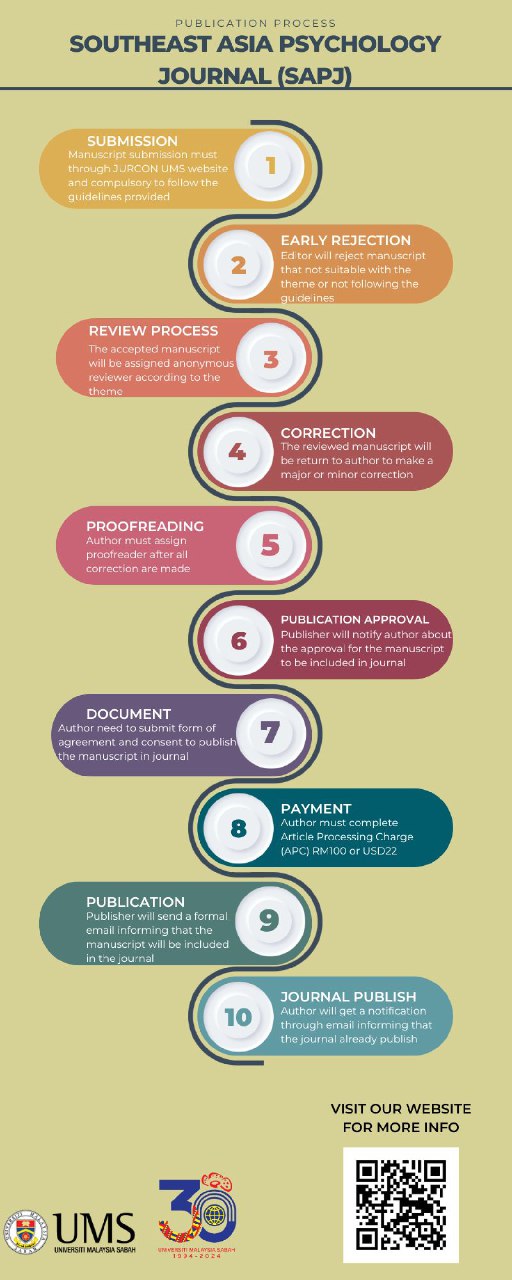EVALUATING COGNITIVE DISTORTION SCALE USING EXPLORATORY FACTOR ANALYSIS AND RELIABILITY ANALYSIS
DOI:
https://doi.org/10.51200/sapj.v8i1.5124Keywords:
Cognitive Distortion Scale, Validity, Exploratory Factor Analysis, Reliability, Cronbach’s AlphaAbstract
Despite being used extensively in psychopathology research, the psychometric properties of Cognitive Distortion Scale have not been examined in Malaysia. This study aimed to study the reliability and validity of this scale. A study was performed on 414 university students. Participants had to respond for each item based on the scale of 1 (never) to 7 (all the time). The reliability and validity of the instrument were analysed with the Cronbach’s Alpha and Exploratory Factor Analysis using the Statistical Package for Social Sciences (SPSS), version 25. Finding from the reliability analysis suggested high reliability index value with the overall score was above .70. Further, the result for instrument validity based on the exploratory factor analysis suggested three (3) main constructs with eigenvalue more than 1 which explained 61.4% of variance. The factor loading values for each criterion ranged from .47 to .86. Overall, finding obtained from this study has shown that Cognitive Distortion Scale has high reliability and validity, and suggested to load ten cognitive patterns into three patterns.
References
Ara, E. (2016). Measuring self-debasing cognitive distortions in youth. International Journal of Asian Social Science, 6(12), 705-712.
Clark, D. A., & Beck, A. T. (2010). Cognitive theory and therapy of anxiety and depression: Convergence with neurobiological findings. Trends in Cognitive Sciences, 14(9), 418-424.
Covin, R., Dozois, D. J., Ogniewicz, A., & Seeds, P. M. (2011). Measuring cognitive errors: Initial development of the Cognitive Distortions Scale (CDS). International Journal of Cognitive Therapy, 4(3), 297-322.
de Oliveira, I., Seixas, C., Osório, F. L., Crippa, J. A., de Abreu, J. N., Menezes, I. G., et al. (2015). Evaluation of the psychometric properties of the cognitive distortions questionnaire (CD-Quest) in a sample of undergraduate students. Innovations in Clinical Neuroscience, 12(8), 20-27.
Fazakas-DeHoog, L. L., Rnic, K., & Dozois, D. J. (2017). A cognitive distortions and deficitis model of suicide ideation. European Journal of Psychology, 13(2), 178-193.
Gross, R. (2015). Psychology: The science of mind and behaviour (7th ed.). United Kingdom: Hodder Education.








